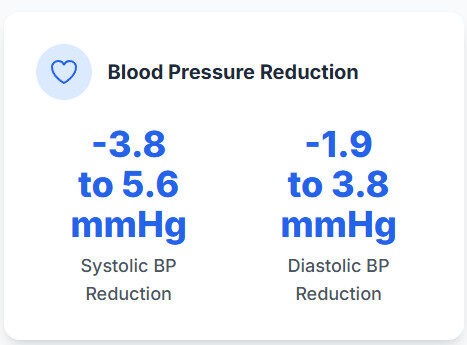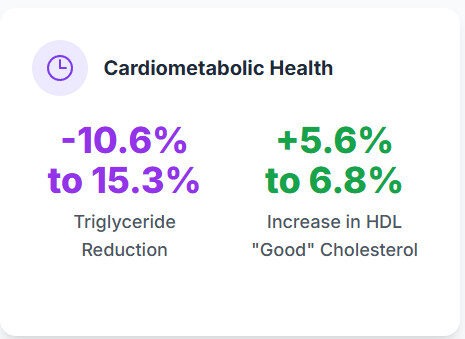-
GLP-1 Weight Loss Medications in Denver:
Wegovy® & Zepbound®Physician-Led Prescription Management for Semaglutide, Tirzepatide, and Oral Weight Loss Medications
FDA-Approved Weight Loss Medications in Denver
Physician-led access to the most advanced metabolic therapies.
|
Brand Name Injectables: From $25/mo (Insurance)
At Clinical Nutrition Center, we treat obesity as a complex biological disease, not a willpower failure. Our board-certified physician and providers utilize the full spectrum of FDA-approved Anti-Obesity Medications (AOMs) to quiet food noise, protect muscle mass, and lower your metabolic set point.
Browse Medications by Type
Semaglutide Therapies
GLP-1 Agonists for Satiety
- Wegovy (Injectable)
Once-weekly injection for weight loss.
View Wegovy Details → - Oral Wegovy (Pill)
Daily tablet. Needle-free option.
View Oral Wegovy Details → - Ozempic (Injectable)
Weekly injection for Type 2 Diabetes.
View Ozempic Details →
Tirzepatide Therapies
Dual Agonists (GLP-1 + GIP)
- Zepbound (Injectable)
The most powerful weight loss drug approved.
View Zepbound Details → - Mounjaro (Injectable)
Dual-action control for Type 2 Diabetes.
View Mounjaro Details →
Daily Oral & Other
Cost-Effective & Convenient
- Phentermine & Tenuate
Stimulants dispensed in-office. Low cash price.
View Phentermine/Tenuate → - Contrave & Qsymia
Combination therapies for cravings.
View Combination Orals → - Saxenda (Daily Injection)
Generic versions coming soon.
View Saxenda Details →
Coming Soon: The Future of Weight Loss
Research moves fast. We are closely monitoring Phase 3 trials for Retatrutide (“Triple G”), Orforglipron (Oral non-peptide), CagriSema, and Amycretin.
The CNC Difference: Safety & Science
We are not a “subscription box” service. We are a medical clinic. All medication plans at Clinical Nutrition Center include:
- Body Composition Analysis (SECA): To ensure you are losing fat, not muscle.
- Metabolic Monitoring: Regular labs to protect your liver, kidneys, and thyroid.
- Dietitian Support: Expert coaching to manage side effects and optimize nutrition.
- Insurance Advocacy: A dedicated team to handle Prior Authorizations and appeals.
Unsure Which Medication is Right for You?
You don’t have to decide alone. Schedule a free information visit to discuss your biology and budget.
Beyond the Scale: Health Benefits of Weight Loss Medication
Zepbound Improves Body Composition

Qsymia improves Waist Circumference

Zepbound lowers blood pressure and cholesterol
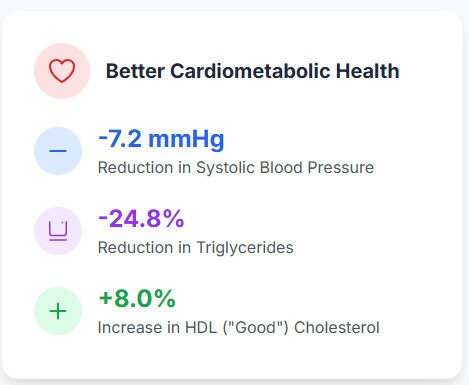
Wegovy reduces risk of recurrent heart attack or stroke

Mounjaro reduces risk of heart attacks

Zepbound improves Sleep Apnea
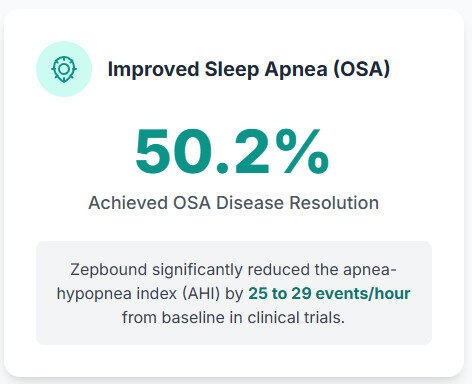
Mounjaro protects the kidneys
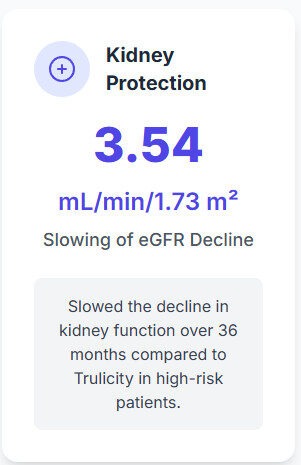
Contrave improves cholesterol

Ozempic protects the kidneys
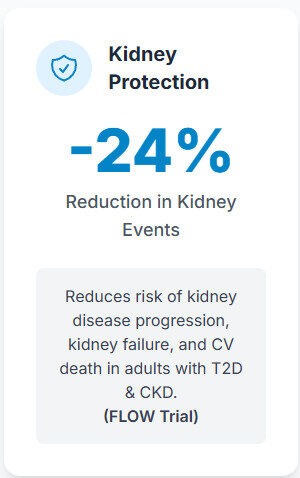
Wegovy reverses fatty liver disease (MASH)
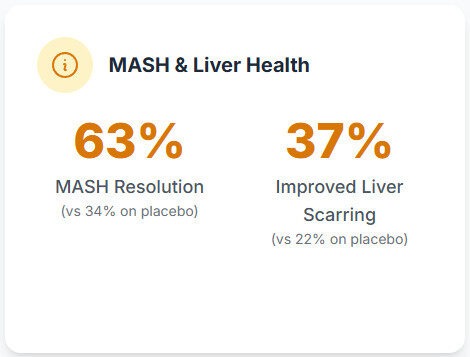
Zepbound improves cholesterol

Qsymia lowers blood pressure
Contrave lowers blood sugar
Qsymia improves cholesterol
Zepbound lowers the waist circumference
Ozempic decreases heart attack risk
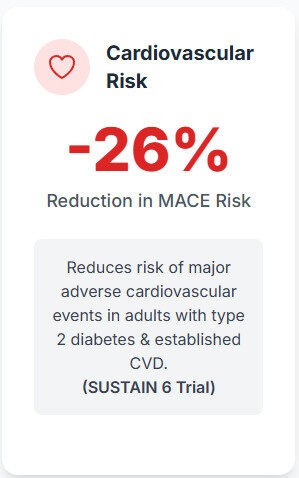
The Power of Consistent Support: A Patient’s Story
Accountability is a cornerstone of our program. The monthly medical check-ins we provide along with easy access to free direct messaging through our patient portal are designed to keep you motivated and ensure your health is always the top priority. There is nothing more rewarding than seeing patients achieve what they once thought was impossible.
“I have lost 54 lbs using a GLP1 medication. They have provided me with additional tools to use with this medication. I’ve not only lost weight but I’ve lost inches. I’m not only stronger, but toned. I feel amazing!” — Annette
“The most profound change that Dr. Lazarus’ program has had on my life is that I have complete freedom from the constant food noise that I was so accustomed to.” — Alison
“He quickly had me understanding that my weight gain… was biochemical, a component of brain chemistry… The staff is supportive, kind, and helps you to understand there is much more going on to weight loss than will power.” — Vicki
Are you ready to learn more?
The first visit is free. What do you have to lose?
Weight Loss Medications
| Cost | $25 – $50 / month |
| Average Weight Loss | ~8-10% 25 pounds |
| Avoid if… | Heart disease, stroke, uncontrolled hypertension, uncontrolled seizure |
| Side Effects | Elevation of blood pressure or heart rate, agitation, insomnia, dry mouth |
| Other Benefits | Improved energy and focus |
| Cost | $25 – $150 / month |
| Average Weight Loss | ~8-10% 25 pounds |
| Avoid if… | Heart disease, stroke, uncontrolled hypertension, uncontrolled seizure |
| Side Effects | Elevation of blood pressure or heart rate, agitation, insomnia, dry mouth |
| Other Benefits | Improved energy and focus, less stimulation than phentermine, improved mood |
| Cost | $99 – $130 / month |
| Average Weight Loss | ~8% 25 pounds |
| Avoid if… | Seizure history, opioid pain medications |
| Side Effects | Nausea, constipation, headache, insomnia |
| Other Benefits | Improved mood, decreased cravings |
| Cost | $99 – $150 / month |
| Average Weight Loss | ~10-12% 25 pounds |
| Avoid if… | Heart disease, stroke, uncontrolled hypertension, uncontrolled seizure, kidney stones, unsafe in pregnancy |
| Side Effects | Elevation of blood pressure or heart rate, agitation, insomnia, dry mouth, confusion, word recall |
| Other Benefits | Improved energy and focus, less migraine headaches |
| Cost | Insurance: $25 / month Otherwise, varies by dose. |
| Average Weight Loss | ~15%, or 35 pounds approximately one in three people lose 20% or more (47 pounds) |
| Avoid if… | Medullary Thyroid Carcinoma (MTC), MEN-II, Pancreatitis |
| Side Effects | Nausea, vomiting, diarrhea, constipation, heartburn, burping, fatigue, headache |
| Heart Benefits | Decreased risk of recurrent heart attack |
| Liver Benefits | Improvement in Fatty Liver Disease (MASH) |
| Cost | Insurance: $25 / month Otherwise, varies by dose. |
| Average Weight Loss | ~15-20% 50 pounds |
| Avoid if… | Medullary Thyroid Carcinoma (MTC), MEN-II, Pancreatitis |
| Side Effects | Nausea, vomiting, diarrhea, constipation, heartburn, burping, fatigue, headache |
| Other Benefits | Improves sleep apnea, decreased risk of type 2 diabetes. |
| Cost | Insurance: $25 / month Otherwise, varies by dose. Newly approved as Generic – check with your pharmacy. |
| Average Weight Loss | ~9% 25 pounds |
| Avoid if… | Medullary Thyroid Carcinoma (MTC), MEN-II, Pancreatitis |
| Side Effects | Nausea, vomiting, diarrhea, constipation, heartburn, burping, fatigue, headache |
| Other Benefits | Same mechanism but less potent than semaglutide and tirzepatide. Daily injection (others are weekly). |
“Have questions about Compounded Semaglutide?” Advertisements for compounded injections are everywhere. Read our doctor’s guide on the safety differences between compounds and FDA-approved Zepbound®—and why the end of the shortage changes your options. [Read the Safety Guide]


